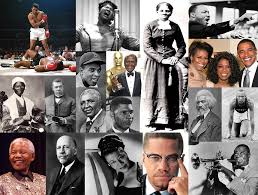Teach Black History In Schools

Teach Black History In Schools
By Janice S. Ellis, Ph.D., Kansas City, MO —
Teach black history in schools and there will be no need to highlight it or try to cover it in a month. It is impossible to cover centuries of history of a race of people in a single month.
It is 2015. We should be beyond setting aside a month to acknowledge the contributions of black Americans. Black Americans should be a part of the course of study, in all subjects, from kindergarten to college throughout the school year.
Join the movement today to teach black history in schools beyond the month of February, where the same familiar names and faces are the focus of a classroom exhibit, or the subject of a couple of lesson plans.
Why not have the contributions of black Americans included in the standard curricula from grade school through high school, in subjects from Art to Zoology (A to Z), learning about and recognizing the role blacks have played throughout the advancement of humanity.
It took over 50 years to expand the first “Negro History Week,” which occurred in 1926, to “Black History Month” in 1976. Will it take another 50 years to reach another historical milestone when black history is integrated into American history?
The expansion of the recognition of black history from a week to a month was officially recognized by the U.S. government during the Bicentennial Celebration in 1976. As we celebrated two hundred years of American History, then President Gerald Ford urged Americans to “seize the opportunity to honor the too-often neglected accomplishments of black Americans in every area of endeavor throughout our history.”
February became the chosen month because of the birth dates of Abraham Lincoln (February 12) and Frederick Douglass (February 14), both of whom played pivotal roles in the abolition of slavery, and both celebrated together by black communities since the passage of the Emancipation Proclamation in the late 19th Century.
Black History Month, also known as African-American History Month, has fulfilled a great purpose since its designation in 1976, which came about as an expansion of “Negro History Week” that had been created some fifty years earlier in 1926 by historian Carter G. Woodson.
These efforts at setting the record straight are to be commended and can be continued within families and communities as a time of special emphasis and commemoration. But such commemorations, within themselves, are not enough.
What a great national celebration that would be when we are able to see that Black History Month in February is no longer needed! Instead, it becomes a good time within families and communities to reinforce the rich heritage and accomplishments of a race of people.
The time is NOW. Become a part of the movement to have the roles and contributions of blacks to be incorporated in the standard required curricula in all subject areas from A to Z, beginning in Kindergarten and continuing through high school in every school district across America. Together, we can do it!
Join the movement to teach black history in schools from kindergarten to college throughout the school year.
Feature Photo Credit: usnews.com

